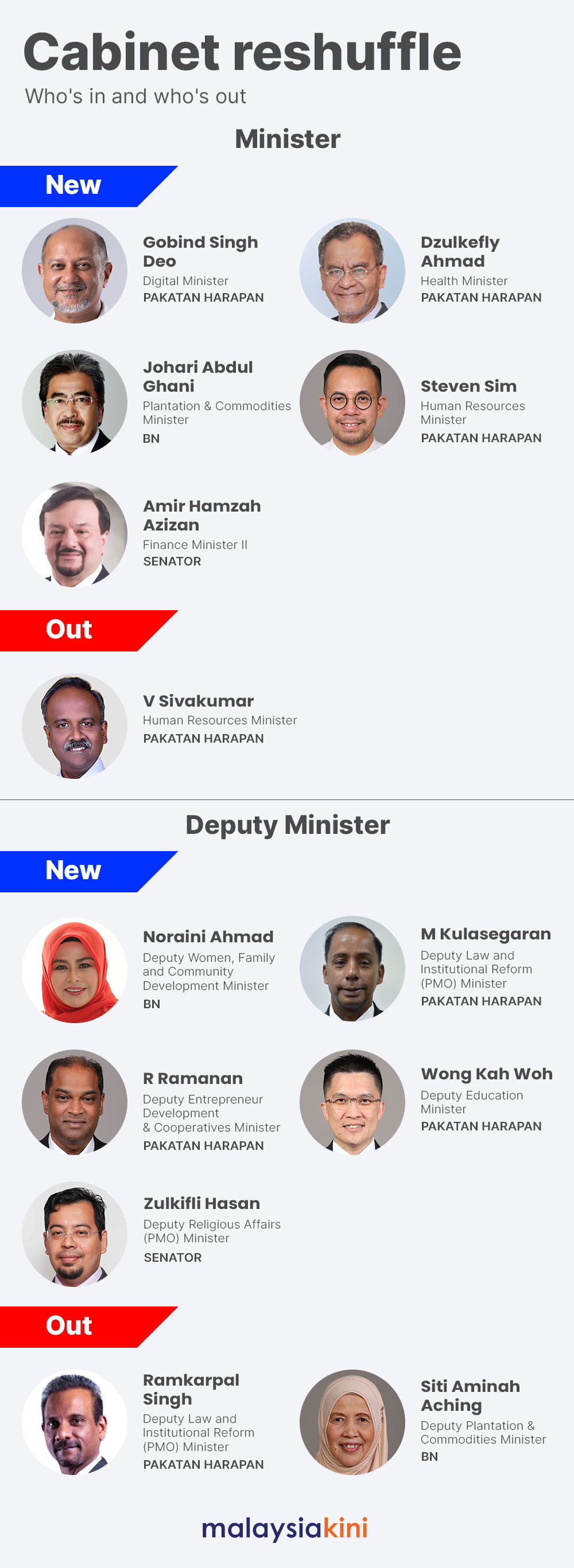The long-awaited and much-discussed cabinet reshuffle has taken place against a backdrop of Prime Minister Anwar Ibrahim’s declining popularity.
Speculation has centred around several trigger factors, including not just a dip in Anwar’s approval ratings but also the need to appease various political factions within the coalition. This has resulted in what’s being seen as a compromised cabinet aimed at balancing representations.
Among the critical reasons fuelling this shift was the outcome of the August state elections, which confirmed a decline in support from ethnic Malay voters since the November 2022 general election.
Many were unhappy with how the cabinet dealt with important matters, especially the high cost of living, and this contributed to the call for change and reforms.
An evaluation of Anwar’s leadership after his first year in power reveals a mixed landscape. His time in office has seen achievements and challenges, including political friction and policy obstacles.
Assessments of his administration have been varied, highlighting both positives and negatives. The pressing question now is whether this reshuffle will be able to address existing weaknesses effectively and serve as a catalyst for key reforms.
The changes to the cabinet appear tailored to address public criticisms and to reinforce key ministries like finance, education, and health.
Anwar’s cabinet reshuffle is strategic, signalling his commitment to tackle economic stagnation and the disquiet over the cost of living. It is also an attempt to rectify perceived under-representation within the coalition and preempt internal conflicts.

Point of contention
Notably, Anwar continues to serve as both prime minister and finance minister, despite his prior commitment to the contrary. This unresolved issue remains a point of contention that has persisted since the initial formation of the cabinet late last year.
Holding the finance minister’s post also puts too much power in the hands of the PM, dilutes his focus, and reduces internal cabinet checks and balances.
The restructuring of ministries, splitting former portfolios into new entities, aims at a more focused approach in other key areas.
The former Natural Resources, Environment, and Climate Change Ministry has been split into the Energy Transition and Public Utilities Ministry as well as the Natural Resources and Sustainability Ministry.
Anwar has also divided the communications and digital portfolio into two separate ministries.
But certain appointments, such as Lim Hui Ying’s move to deputy finance minister, are concerning due to her underwhelming record in a previous role.
The division of the digital and communications portfolio to Fahmi Fadzil and Gobind Singh Deo also needs explaining.
Demands for substantive reforms
The reshuffle has some commendable aspects: the appointment of Dzulkefly Ahmad as health minister has been well received, given his commendable handling of Malaysia’s initial Covid-19 response under the earlier Pakatan Harapan administration.
The exclusion of V Sivakumar, the former human resources minister embroiled in controversy, appears warranted.
Looking at the broader political spectrum, this reshuffle has taken place amid growing perceptions that Anwar’s leadership lacks genuine reform initiatives.
To be fair, the challenges inherited by the PM were substantial, ranging from fiscal constraints to political polarisation and bureaucratic resistance.
To that end, the reshuffle attempts to address various concerns and bolster crucial sectors. But unresolved matters such as cabinet size, conflicting ministerial roles, and certain appointments, remain under scrutiny.
Many will be watching closely to see how effective these changes are in steering Malaysia’s direction and bridging governance gaps.
In any case, the demands for substantive reforms are likely to persist. - Mkini
KHOO YING HOOI is the co-editor of Aliran newsletter. This article was first published in Aliran.
The views expressed here are those of the author/contributor and do not necessarily represent the views of MMKtT.

No comments:
Post a Comment
Note: Only a member of this blog may post a comment.